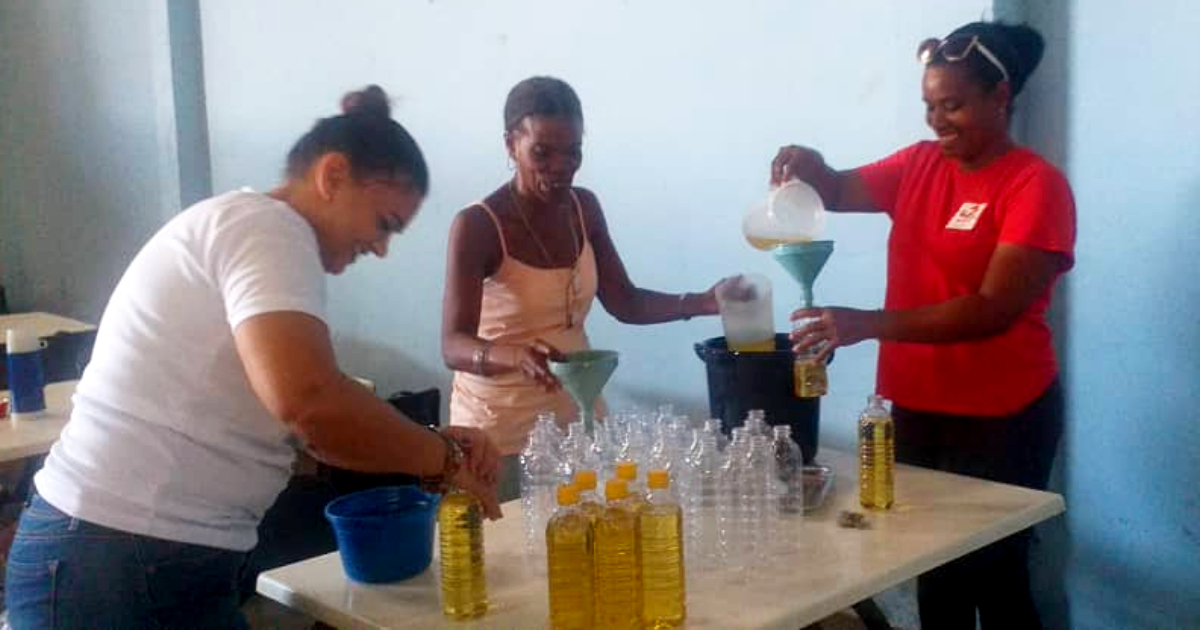In a recent humanitarian effort, Cuba has received a shipment of 26,000 bottles of cooking oil from the United States. This initiative is part of a campaign led by The People’s Forum, a leftist organization based in New York. This marks the fourth delivery under the "Let Cuba Live" campaign, aimed at providing urgent assistance to Cubans facing severe shortages of basic goods, power outages, and the aftermath of natural disasters.
Aid Campaigns and Their Political Implications
Under the leadership of activists like Manolo de los Santos, who is known for his close ties with Cuban President Miguel Díaz-Canel, The People’s Forum has partnered with other left-wing organizations, such as the Proyecto Hatuey and the Party for Socialism and Liberation. The campaign has successfully raised over $221,000, highlighting the support from leftist sectors in the United States for the Cuban government, and presenting the aid as an act of international solidarity.
The organization has been vocal in its criticism of the U.S. embargo on Cuba, labeling it an "imperialist" policy that harms the Cuban populace. The People’s Forum uses its platform to mobilize citizens and raise awareness about Cuba's situation, attributing the island's shortages to the embargo. However, critics argue that this narrative overlooks the significant role of the Cuban regime's internal decisions in perpetuating the economic crisis, criticizing it as a one-sided perspective.
The Complexity Behind the Embargo Narrative
While the Cuban government often blames the U.S. embargo for the island's hardships, the reality is multifaceted. Although the embargo imposes certain restrictions, there are humanitarian exceptions allowing the export of goods like food and medicine to Cuba, as evidenced by this donation. The government's focus on blaming the "blockade" obscures internal issues such as economic centralization and the lack of structural reforms, which hinder private sector development and increase reliance on external aid.
This has sparked criticism among Cubans, who question the transparency of resource management and government decisions. Many citizens express skepticism and frustration, wondering why sustainable solutions are not pursued to reduce dependence on external aid.
Public Reaction to International Aid
The arrival of much-needed supplies, including electric generators and now cooking oil, has been welcomed by many Cubans. Nevertheless, there remains a sense of dissatisfaction and skepticism. Through social media, some have questioned why the government fails to invest in sustainable solutions that might lessen reliance on foreign aid, while others see these donations as merely temporary fixes to deeper issues that require significant changes in internal governance.
Contradictions in the Regime's Narrative
The "Let Cuba Live" campaign underscores the possibility of humanitarian aid from the United States despite embargo restrictions, highlighting contradictions in the Cuban regime's official narrative. While short-term aid is crucial, genuine relief for the Cuban people depends on economic reforms that enable efficient domestic production and lessen the need for international donations.
The support from organizations like The People’s Forum illustrates the ideological and political backing the Cuban regime receives from certain sectors of the American left. However, the ongoing donations also spotlight the Cuban system's lack of effective alternatives to meet the population's needs, prompting a heated debate over the actual causes of the island's crisis.
Intensifying Cooking Oil Shortage in Cuba
The recent donation of cooking oil comes amid a severe scarcity of this essential product in Cuba. For months, Cubans have struggled to obtain cooking oil, a staple in their daily diet. In April 2024, the price of a liter of vegetable oil on the informal market soared to 1,500 Cuban pesos, surpassing more than half of the minimum wage, underscoring the severity of the shortages and inflation in the country.
This dire situation has forced many to turn to the black market, where they pay exorbitant prices far beyond the average purchasing power. The shortage impacts not only individual consumers but also state distribution. In September 2024, reports indicated that Cuba would face the month without coffee or oil for the basic basket, further illustrating the government's inability to secure essential goods for its citizens.
Moreover, by October 2024, the situation remained grim, with continued absence of coffee, oil, beans, and toothpaste from the monthly distribution, exacerbating the hardships faced by the Cuban populace.
